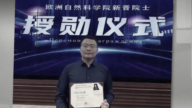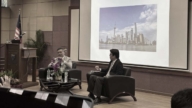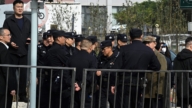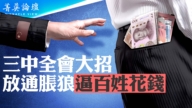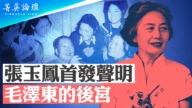【新唐人2013年08月22日訊】《紐約時報》最近刊發文章透露,中共官員聚集在中國各地的會議大廳裡,聆聽高層領導發出一個嚴肅的秘密警告。他們被告知,如果黨不能根除中國社會的七大潛在顛覆性力量的話,權力就可能被奪去。在這個被稱為「九號文件」裡面提到,七大危險以「西方憲政民主」為首,其他則包括對人權「普世價值」的宣揚等。大陸知識份子指出,中共開歷史倒車只會激起民眾的牴觸和反抗,中共最終將會掉進萬丈深淵。
《紐約時報》8月20號報導說,九號文件已經在中國各地通過一系列強制性學習班進行了傳達。比如,湖南省的一個地方政府網站就講到了這樣的一個學習班。湖南衡陽市市委宣傳部副部長成新平在一個礦業官員會議上說,「宣揚西方憲政民主是在企圖否定黨的領導,」他還說,人權倡導者希望「最終形成政治對抗力量」。
九號文件指稱,一黨專政的反對者「為了挑起公眾對黨和政府的不滿,已經在揭露官員資產,利用互聯網來打擊腐敗、反對媒體控制以及其他敏感問題上挑起了事端。」
《紐約時報》報導說,自從文件下發之後,中共的報刊和網站一直在強烈批判近年來不屬「犯規」之列的憲政和公民社會觀念。官員們加大了工作力度,防止公眾看到互聯網上的批評意見。兩位知名的權益倡導人士在過去數週內相繼被拘留。
原中央黨校《學習時報》副編審鄧聿文表示,他絲毫不擔心中共喉舌對憲政的批判。
原中央黨校學習時報副編審鄧聿文:「這個你不可以從反面理解嗎?越是批判越為憲政做廣告。如果它不批判,人們對憲政還不關心,現在它這一批判全國人民都關心憲政了。所以在我看來越批判越好。」
北京註冊會計師杜延林則認為,所有這些都預示著中共當局要徹底的開倒車。
北京註冊會計師杜延林:「因為在這樣一個大的時代背景下,在互聯網時代,利用謊言和暴力想把歷史拉回到文革,我覺得這是非常愚蠢的。這可能就像在一個高速行駛的公路上,一輛向前飛奔的汽車,那麼你突然來一個急轉向,那麼他唯一的命運就是掉進萬丈深淵。」
《紐約時報》報導說,中共當局對官員發出內部警告,顯示出習近平在公眾面前的自信外表背後的種種擔心。例如,經濟放緩,人們對腐敗的公憤,急切期待政治改革的自由派發起了種種挑戰,這些都容易對中共構成威脅。
九號文件餘音未了,8月19號至20號在北京召開的全國宣傳思想工作會議上,中共新任總書記習近平又直接強調意識形態的極端重要性,聲稱「宣傳思想工作就是要鞏固馬克思主義在意識形態領域的指導地位」。
杜延林認為,在現在的互聯網時代,中國已經形成一種「市民社會」的狀況,中共的意識形態和民間社會已經割裂,喉舌的宣傳不會對民間產生甚麼影響。
杜延林:「官方可以發出這樣的聲音,這樣的號召,但是沒有人會響應的。如果說他們的所作所為,他們所有的這些歷史倒車如果影響到市民的生活,那麼大家可能會起來牴觸。我相信在不遠的將來,民間會做出一個強有力的回應。當然這需要一些別的事件作為導火索。」
《紐約時報》報導說,中共內部支持深化西式經濟變革的成員,往往跟那些推動法治、促進政治制度開放的人結為盟友,傳統派卻支持國家加大對經濟和政治生活的雙重控制。
報導還認為,習近平從兩個敵對陣營中各取一點的做法,最終可能會讓他自己的議程在黨內紛爭中陷入泥沼。習近平此前承認,正在放緩的中國經濟需要更能推助市場的新動力,分析者指出,這種動力只能通過放寬政府管制來獲得。
採訪編輯/秦雪 後製/陳建銘
“Document No. 9″: Exposed Secret Warning Indicates Chinese Regime On Verge of Collapse
The New York Times recently reveals that Chinese
Communist Party (CCP) cadres, at internal meetings,
have listened to a secretive top-level warning.
They were told that the CCP will lose its ruling power
if it doesn’t eradicate seven major subversive currents.
The memo, called “Document No. 9″, lists “western
constitutional democracy" as the first of seven dangers.
Other cover the “universal values" of human rights.
China’s intellectuals think that if the CCP goes against
these historical trends, it will provoke public resistance.
The CCP will end, falling into the abyss.
The New York Times’ article, dated August 20, says
“Document No. 9″ has been conveyed in compulsory
study sessions among CCP cadres across China.
The study session is reported on a local
government website in Hunan Province.
Cheng Xinping, Vice Propaganda Chief, Hengyang
city in Hunan, spoke at a meeting for mining officials.
He said that, “preaching Western constitutional
democracy is trying to deny the CCP leadership."
He alleged that human rights advocates
expect to “join forces for a political confrontation."
“Document No. 9″ alleges that opponents of
one-party dictatorship “aim to provoke public
dissatisfaction with the CCP and government."
“They have incited incidents on some sensitive issues.
These include exposing officials’ assets, combating
corruption via internet, and opposing media control."
The New York Times comments that, “since the circular
was issued, party-run publications and web sites have
vehemently denounced constitutionalism and civil society.
These were notions that were not
considered off limits in recent years."
“Officials have intensified efforts to block
access to critical views on the Internet."
“Two prominent rights advocates have
been detained in the past few weeks."
Deng Yuwen is a former deputy editor of Learning Times,
the official journal of the CCP Central Party School.
He doesn’t worry about the official CCP
media’s criticism of constitutionalism.
Deng Yuwen: “Why don’t we understand
the issue from the reverse side?
The more severe their criticism is, the more
they are publicizing constitutionalism.
The public would have known nothing about
constitutionalism if they hadn’t censured it.
Now, with their intensive criticism, the whole
nation has given their attention to constitutionalism.
So in my view, it’s better to see more criticism on this issue."
Beijing-based expert, Du Yanlin, suggests all this signals
that the CCP is ready to go into reverse completely.
Du Yanlin: “Today is the era of the internet.
I think it’s stupid that the CCP authorities, with lies and
violence, try to put the clock back to the Cultural Revolution.
It’s like a high-speed car running on a
highway suddenly makes a sharp turn.
What follows will only be a drop into the abyss."
The New York Times states that, “the internal
warnings to cadres show that Xi Jinping’s
confident public face is accompanied by fear."
His dread includes that “the party is vulnerable to
an economic slowdown, public anger about corruption,
and challenges from liberals impatient for political change."
On August 19 -20, in Beijing, the CCP held
a national conference on propaganda work.
CCP leader Xi Jinping emphasized
ideology is extremely important.
He said that “propaganda work is to consolidate
the guiding role of Marxism in the field of ideology."
Du Yanlin says that nowadays, the internet
has helped form a “civil society" in China.
The CCP’s ideology has been
isolated from folk society in China.
Thus, the CCP’s propaganda will no
longer have a big impact on civilians.
Du Yanlin: “The society won’t resonate
with the authorities’ voice or appeal.
If the CCP actions to against historical trend
affects citizens’ daily life, the people will resist it.
I believe in the near future, the public
will give a strong response to it.
This will be triggered by some other events."
According to The New York Times, “proponents
of deeper Western-style economic changes are
often allied with those pushing for rule of law
and a more open political system."
“While traditionalists favor greater state
control of both economic and political life."
The article quotes analysts.
“Xi Jinping’s cherry picking of approaches from
each of the rival camps could end up miring
his own agenda into intra-party squabbling."
“Xi has acknowledged that the slowing economy
needs new, more market-driven momentum that
can come only from a relaxation of state influence."







